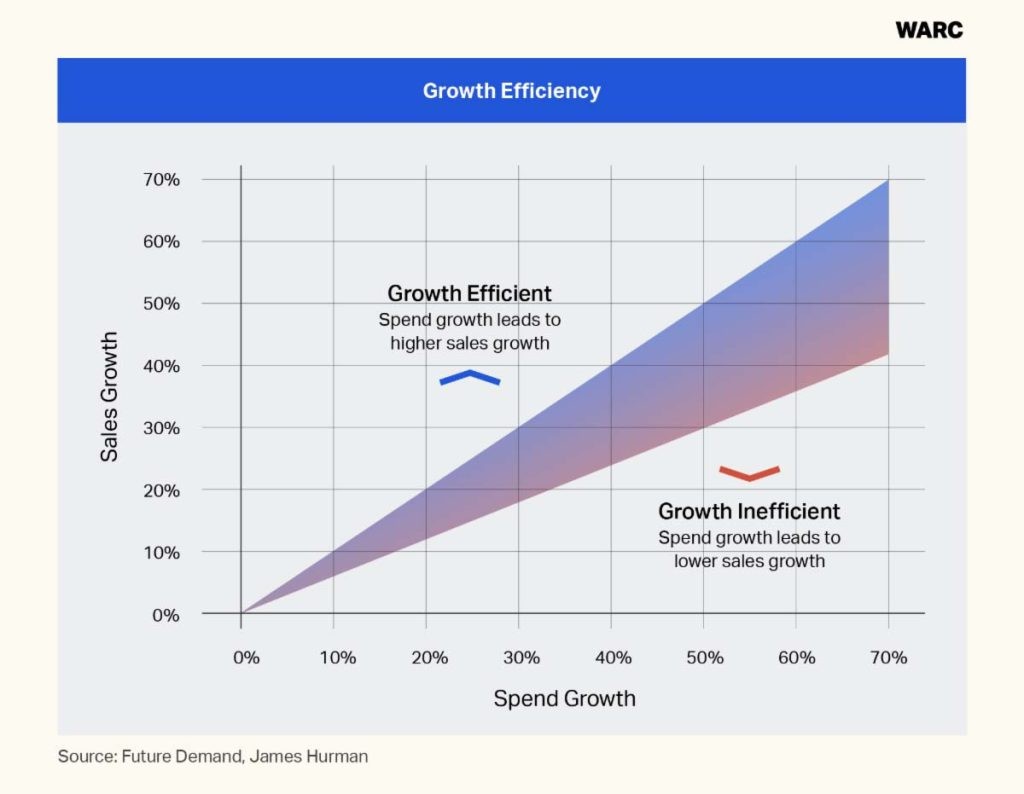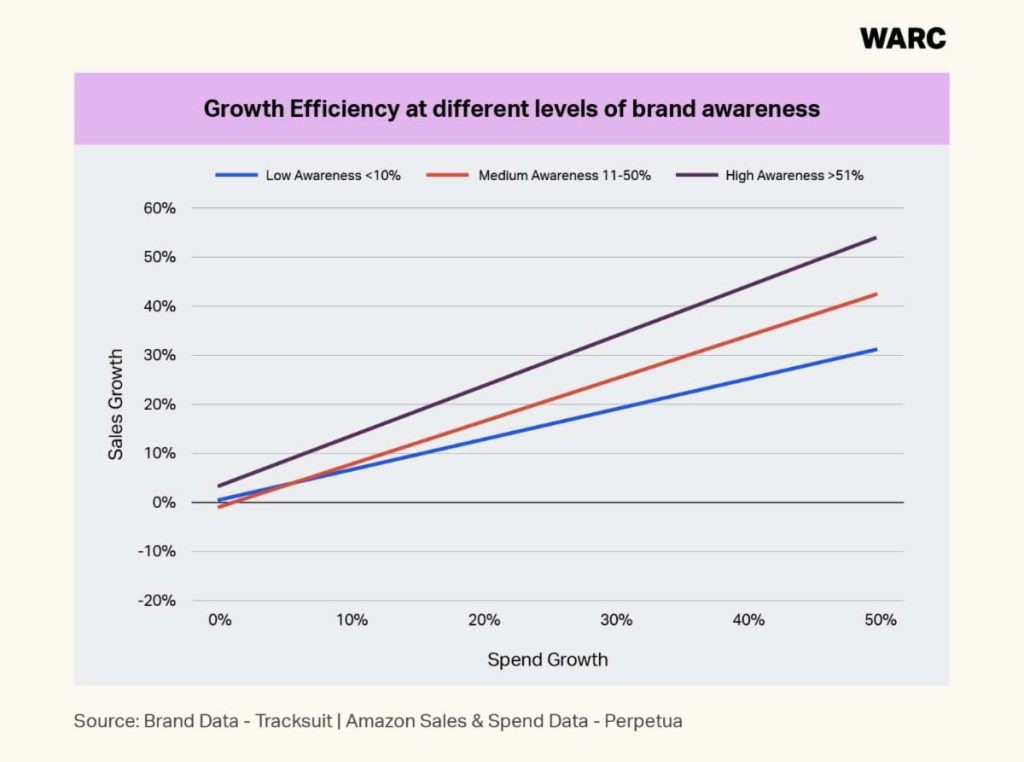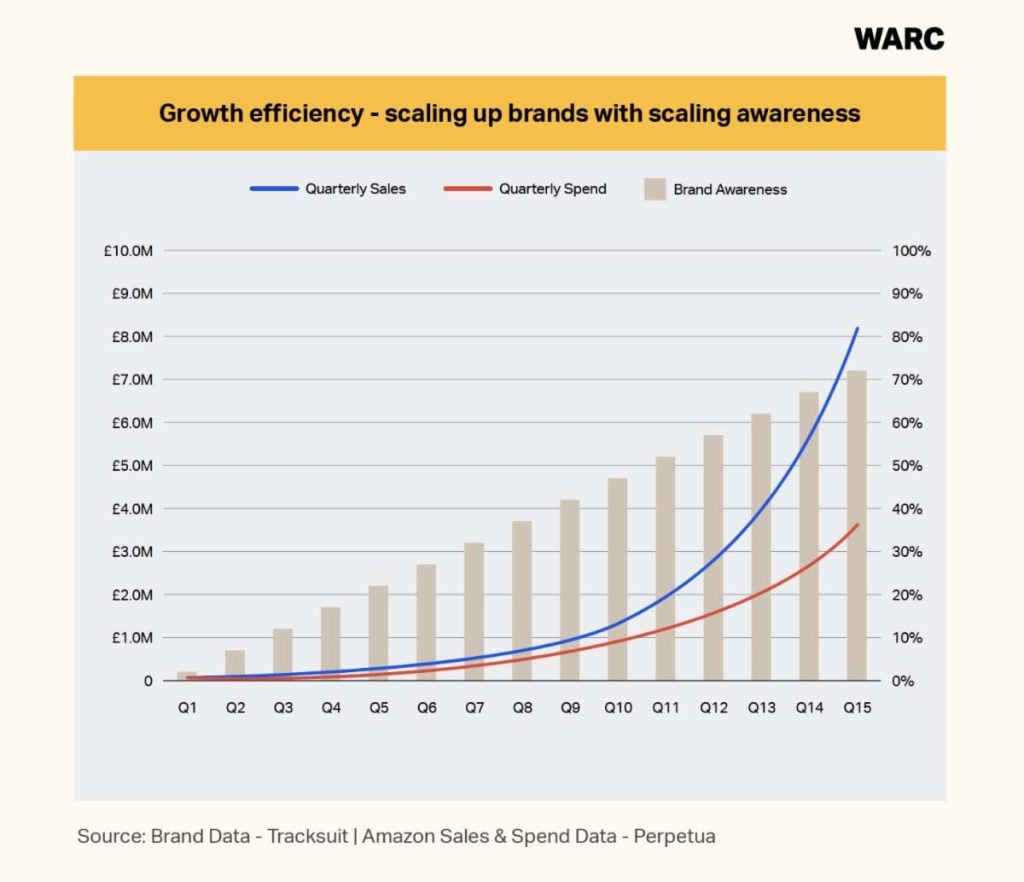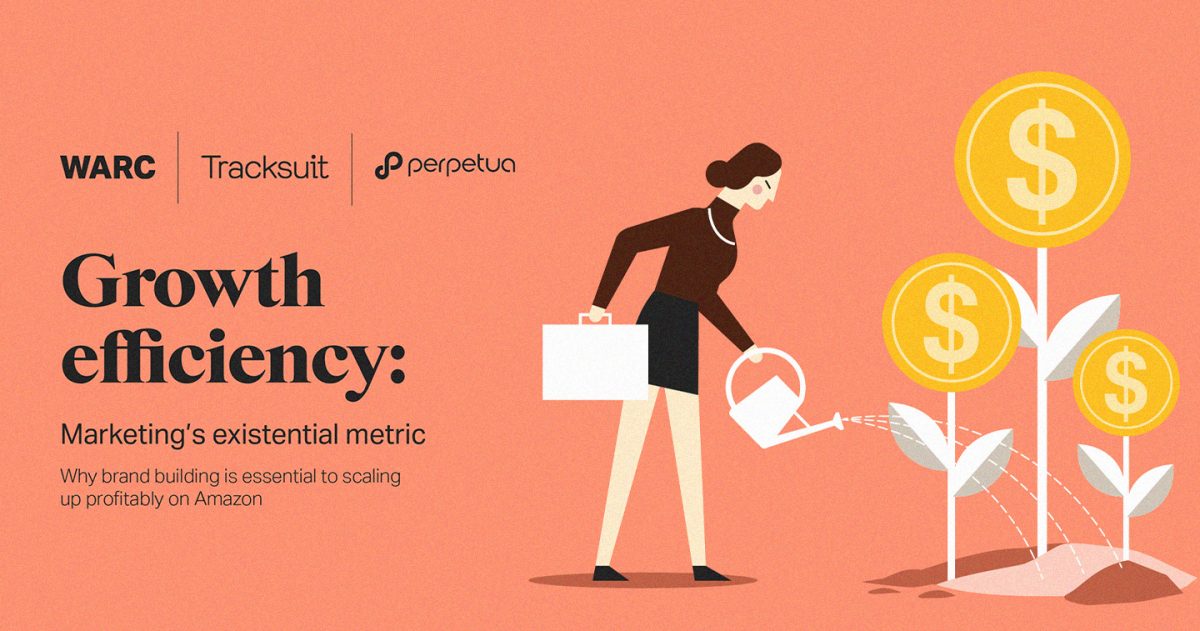LONDON, UK — WARC, the global authority on marketing effectiveness, in partnership with brand tracking company Tracksuit, and WARC sibling company Perpetua, provider of ecommerce advertising optimization and intelligence, has released new research into the role of brand in helping performance marketing work harder.
The new study, Growth Efficiency: Marketing’s Existential Metric, based on an analysis of ads on Amazon, shows that building brand awareness drives greater effectiveness in performance marketing. Additionally, to help marketers understand and demonstrate marketing’s impact on profitable growth, the report introduces a new core success metric: “growth efficiency.”
Amin Mrini, SVP, Chief Business Operations at WARC, and co-author of the report, said, “Faced with rampant inflation and a cost-of-living crisis, many marketers, including advocates of brand-building, have pivoted towards performance.
“The results of this unprecedented study into the role of brand in helping performance marketing work harder, overwhelmingly show that, even within digital environments, brand awareness drives greater effectiveness in performance marketing. We also introduce ‘growth efficiency,’ a new effectiveness metric to help marketers better understand and monitor the ratio of sales uplift relative to ad spend increase.”
The research is based on analyzing data, provided by Perpetua, of Amazon sales and advertising spend data for over 100 brands in the US, across a diverse range of categories, representing more than $1bn in sales over an eight-month period.
The advertising investment tracked was almost all (90%+) sponsored product ads, meaning the analysis was focused on “performance” formats designed to reach people in-market and harvest existing demand.
Perpetua’s dataset was combined with Tracksuit’s data, which measures brand awareness over time, to provide an analysis of the relationship between brand awareness levels and growth efficiency. Key findings outlined in the “Growth Efficiency: Marketing’s Existential Metric” study are:
The paradox of unscalable efficiency
Only 20% of portfolio companies go on to scale up. A common pattern among brands seeking to scale up is that at a certain point, growth plateaus, becomes more expensive, and previously strong performance marketing metrics, such as ROI (return on investment) or ROAS (return on advertising spend), decline.
If the overall business objective is to grow big or become a market leader, it’s important to understand how efficiently a business can grow.
Introducing a new metric: Growth efficiency
The data revealed that short-term sales efficiency (the immediate sales value seen from advertising spend) is not an indicator of how efficiently a company can grow. However, by also measuring longer-term growth efficiency (the ratio of advertising spend increase relative to future sales uplift) scale-up brands can plan for profitable growth.

Growth efficiency and brand strength
High awareness brands generate more than twice the sales lifts of low awareness brands.
The study revealed that brands with higher awareness levels (51% or greater awareness) have a growth efficiency advantage over brands with medium awareness (11% to 50% awareness) and low awareness brands (10% or less). High awareness brands generate more than twice the sales lifts of low awareness brands as they increase their spend. At a 10% spend increase, high awareness brands yield an average 13% sales increase, while low awareness brands yield just a 6% sales increase.

Modeling growth efficiency as brands scale
The analysis shows that when brands scale up awareness at the same time as scaling up performance spend, sales can continue to happen very efficiently and brands can grow profitably into a much bigger and much more valuable business.
Greater levels of brand awareness support greater levels of growth efficiency. Both are critical to sustainable, profitable growth. The latter is very much dependent on the former.

Co-author James Hurma and Founding Partner of Previously Unavailable said, “The data very clearly shows that building brand awareness improves the performance of performance marketing. Our recommendations to marketers, particularly those in small or scaling brands would be to optimize for growth efficiency, invest in brand, even in start-up/scale-up phases, and track and optimize both brand and performance.”
A complimentary sample report is available here. WARC subscribers can read the report in full.








